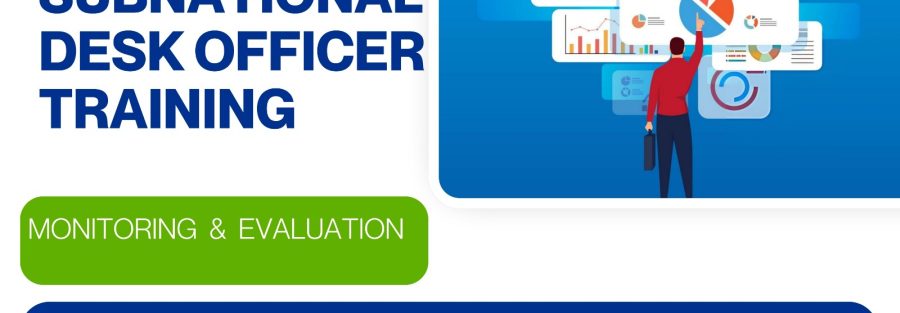The Society for Planet and Prosperity (SPP), in collaboration with the Department of Climate Change (DCC), Federal Ministry of Environment, continued its capacity-building workshop for Climate Desk Officers and Directors of Climate Change from Nigeria’s subnational governments. The workshop which began on 22 October 2025 with a session on data collection and greenhouse-gas inventory evaluation and reporting, focused on Monitoring and Evaluation (M&E) of climate projects in the second series. Participating Climate Change Desk Officers shared their M&E experience, revealing a mix of beginners and intermediate exposure to M&E practice.
Facilitated by Mr. Gboyega Olorunfemi, Project Lead at SPP, the training sought to address the challenges in monitoring and evaluating climate change projects at the state level, with an emphasis on designing effective monitoring systems and digital tools. Mr. Olorunfemi explained, that adopting effective M&E framework will improve evidence-based decision-making, accountability and project delivery, and help states tell a clearer, more accurate climate story that can unlock climate finance at the subnational level, where it’s needed most.
Delivering the training, Olorunfemi explained the differences between monitoring and evaluation in project management, emphasizing that monitoring focuses on tracking progress and improving efficiency, while evaluation assesses the effectiveness of policy impacts. He presented a simple M&E framework — inputs, outputs, outcomes and impacts — and used a climate-resilience project as an example to show how actions can translate into measurable change at the subnational level. The workshop also covered practical indicators and quality-management measures to ensure project activities deliver intended results.
The DCC Director, Dr. Iniobong Abiola-Awe, represented by Ms. Dolapo John, in her remark stated that the training was as a result of popular demand from engagement with the subnational officials, adding that the Department of Climate Change is committed to strengthening the capacity of subnational Directors and the Desk Officers.
“Monitoring and Evaluation is a very key issue, because one of the gaps we identified in the second subnational governance ranking was documentation. Most of the states do not have sufficient or efficient means of documenting their activities. That’s why you see states that were up in ranking last year now declined in this year’s ranking.” she said.
Following the second subnational governance ranking, several states across the country are tackling capacity shortfalls and pursuing improvements. This training provides officials with the technical skills required to improve state-level climate governance. This is an initiative of SPP that has received support from the European Climate Foundation (ECF) and it continues with capacity building on Climate Finance in the next phase.






